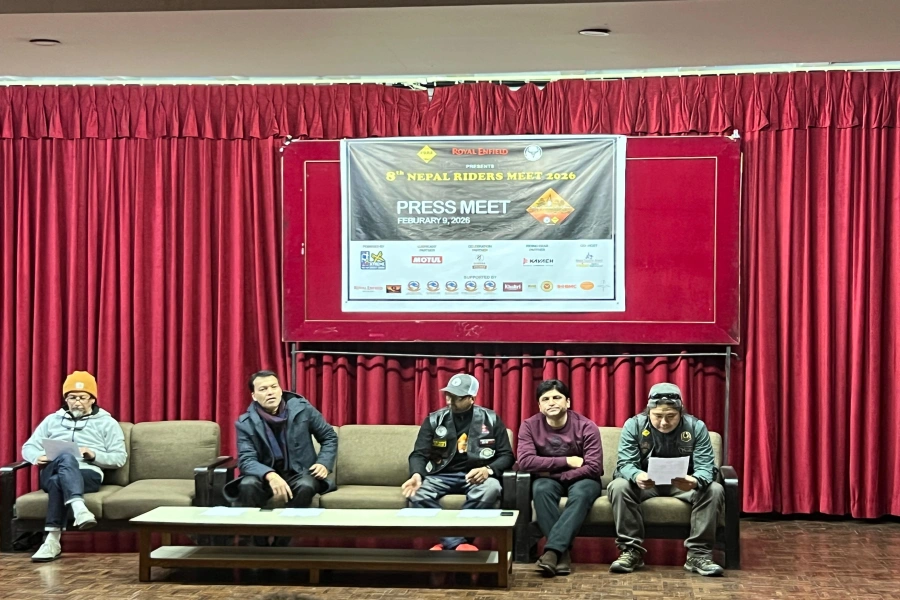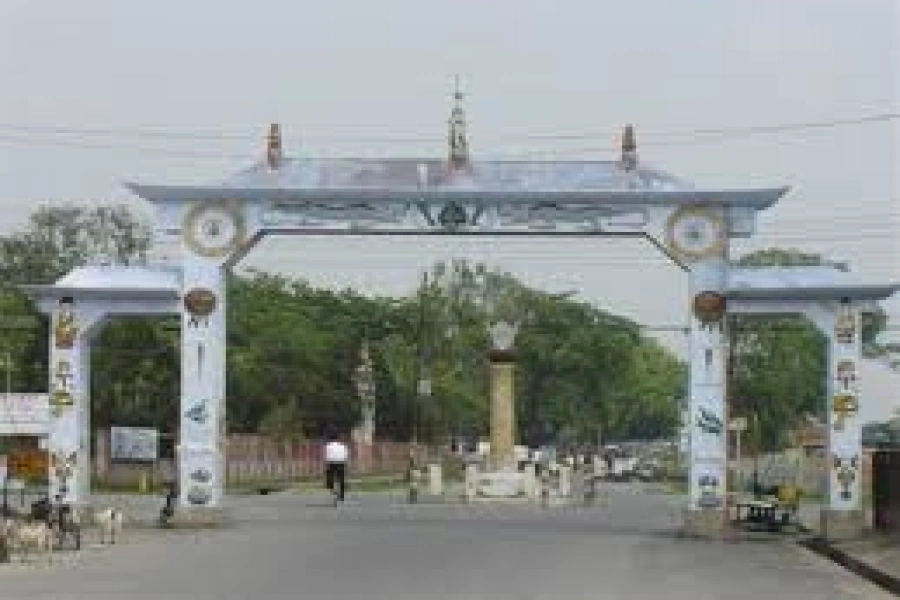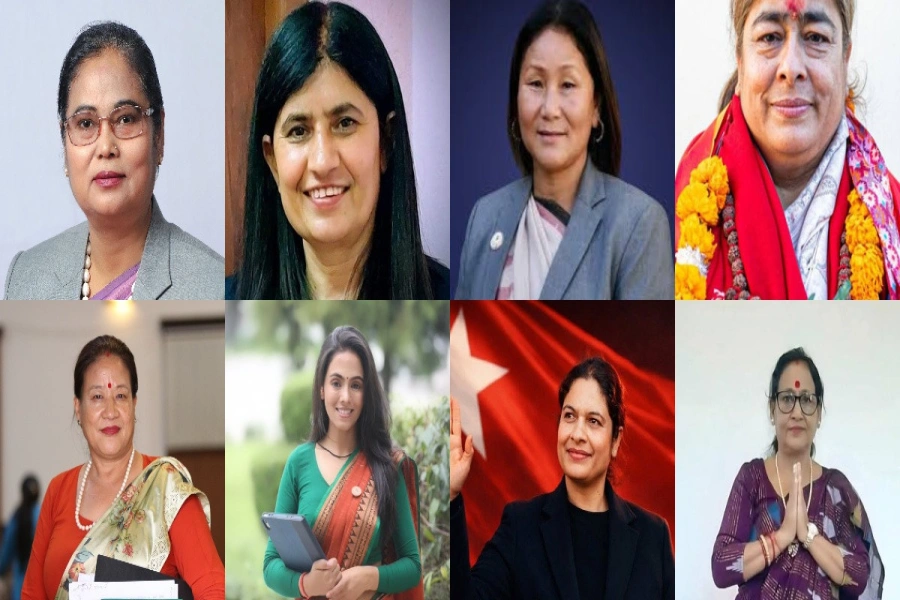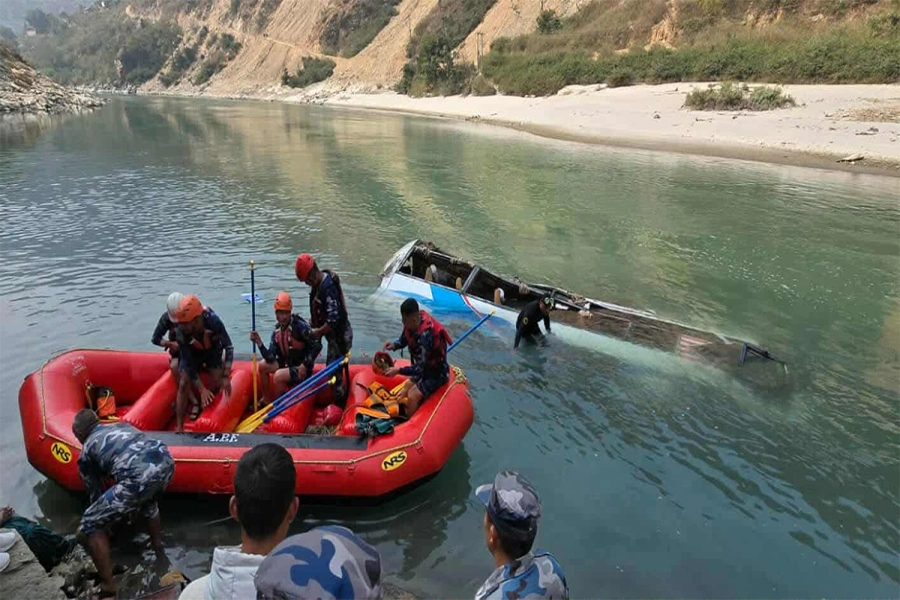As Nepalis, we all need to be proud of King Prithvi Narayan Shah and his contributions to the country. He is equal for all of us who are proud to be Nepalis.
Various political parties have demanded the government celebrate Prithvi Narayan Shah's birth anniversary on January 11 as Nepal Day. There is an argument that the birth anniversary of King Prithvi, who unified Nepal, should be celebrated as 'Nepal Day'. In most countries of the world, National Day is celebrated as a day of special significance. We do not have a definite national day for Nepal. They also expressed the belief that the birth anniversary and National Unity Day could be the most suitable day to celebrate Nepal Day.
The need for national unity has been felt more in recent years than perhaps in any other year. COVID-19 or Corona's terror and infection-ridden Nepali society and economy were expected to take a leap, but this year it did not happen. Different political circles have different views, but it does not seem that all should be under the same umbrella in national self-esteem. This day is celebrated not only as the birthday of a king but also as the day when the trumpet of Nepali identity and Nepaliness was blown.
Comparing countries like Nepal, Germany, Italy, and China which started the race together for development and national unity while reviewing the history, today Nepal is facing a big gap in terms of development, prosperity, and governance.
"Bribery and bribery givers and takers are the enemies of the nation." "Nepal is a yam between two boulders." King Prithvi Narayan Shah (1779-1831) was a Shah dynasty king. He is known as the builder of modern Nepal, creating a single country by uniting the baise and chaubise principalities and other smaller states.
In memory of this great king, National Unity Day is celebrated in Nepal on the 27th of Poush. Today, Nepal is celebrating the 300th birth anniversary of the great King Prithvi Narayan Shah. If Prithvinarayan Shah had not envisioned a colonial threat to the small states in the southern part of the Himalayas about 250 years ago, perhaps there would be no country today to be proud of as Nepal.
After the gradual collapse of the Mughal Empire in the south, European colonists entered Southeast Asia in large numbers as merchants and then began colonizing hundreds of states. Nepal had shrunk and was confined to the Kathmandu Valley with some hilly areas. There were dozens of states stretching from Assam in the east to Kashmir in the west and the Ganges and Brahmaputra rivers in the south from east to west and from north to south. Somewhere in the vast Himalayan region, the king of a small Gorkha kingdom felt threatened by foreign invaders.
At the age of twenty, Prithvi Narayan Shah started a campaign to unite dozens of small kingdoms to build a strong and powerful nation to fight the enemies. Prithvi Narayan spent 33 years of his main life building and uniting Nepal. If Prithvinarayan had not risked his life to save Nepal from British colonialism, then perhaps Nepal would not have existed and we would not be speaking Nepali today.
SC summons govt for giving public holiday on Prithivi Jayanti

After the British annexed all the small kingdoms to the Indian colony, all the Nepalis, language, culture, and traditions were swallowed and wiped out by the huge population of the South. Therefore, it would not be an exaggeration to say that gratitude and homage should be paid to Prithvi Narayan Shah, the creator of "Greater Nepal", inside and outside present-day Nepal and anywhere in the world.
Nepal has seen many political changes in its 70-year history from 1951. India has played a major role in these changes. Due to the geographical location of Nepal, India has a role in Nepali politics.
After the British War of 1614-1616, the British colonialists plundered almost half of the Nepali land of Unified Greater Nepal. The British annexed the looted land to their new colony of India. After the so-called Sugauli Treaty, Nepal was surrounded by India from the three sides of East, West, and South. Instead of returning the colonized Nepali land, India has continued its occupation.
India has also occupied Nepali lands in Kalapani, Lipulek, Limpiyadhura, and Susta. It has been taking advantage of Nepal's landlocked situation. India wants to control all of Nepal's water and natural resources. When Nepal’s government disagrees with the Indian order, India responds by imposing economic sanctions.
Nepal has endured three major blockades in the last few decades. The main reason for India's inhumane treatment of Nepal is its landlockedness. Now is the time for Nepal to claim the territory of Greater Nepal, which was annexed by the British to the Indian colony. The territory of Unified Greater Nepal never belonged to India. Because India was not what it is today, about 200 years ago. After the restoration of Greater Nepal, Nepal will have a common border with Bangladesh and Nepal will no longer be enclosed by India. Then the development of Nepal will begin.
Prithvi Narayan Shah laid the foundation of modern Nepal by transforming the Shah dynasty ruling in small areas (Bhirkot, Kaski, Lamjung, and Gorkha) into a dynasty of the whole of Nepal.
The unification campaign started by Prithvi Narayan Shah was expanding and the border of Nepal was extended to the Tista river in the east, the Magadha river in the south, and the Sutlej river in the west. He remained at the pier for nine days while reading history and passed away at 7 am on January 20. It is also mentioned that he died after being seriously injured in a tiger attack while going hunting.
While on the ferry, he gave lectures on Nepal's geopolitical situation, social life, defense, and development, also known as the 'Divyopadesh'. "Nepal is like a yam between two boulders. ‘The king of the south is very clever. Don't cut it, cut it short.’ etc.
Some relevant sermons were given by Prithvi Narayan Shah.
Economic policy
Prithvi Narayan Shah has said a lot about economic prosperity. He believed that the country could not be safe if it became poor. He was of the opinion that the government should do the work itself without awarding any contract to anyone to collect the tax. At that time, he wanted to close the east and west roads and open the road to Kathmandu.
Prithvi Narayan Shah emphasized local production. In his book “Divyopadesh”, he says that if foreign traders entered Nepal, they would leave it as a desert. In this context, he advised boycotting wearing foreign clothes and also trained the local people to weave clothes. He believed that local property should not go out of the country. He encouraged them to sell Nepali herbs in foreign lands and bring back their wealth. He wanted to see the money only in the country. He famously said, "If the people are healthy, the palace will be strong." Along with the unification of Nepal, King Prithvi Narayan Shah also incorporated all the elements of modern nationalism, including secularism, inclusion, equality, and sovereignty of the nation.
Former Indian Foreign Secretary Harsh V Shringla, who served as India's ambassador to the United States and Thailand and also served as High Commissioner to Bangladesh before being appointed foreign secretary, reminded everyone of Prithvi Narayan Shah’s role in promoting the word ‘Gorkha’. The statement made by Indian Foreign Secretary Shringla, who is associated with the Indian Gurkha, while inaugurating a school building constructed with the help of the Indian government under the Shah Durbar of Gorkha, is considered very important.
The current state of Nepal, led by Maoist leader Prachanda and his gorilla-led politicians of the current ruling party, does not officially recognize his status because they have tried to erase his legacy. However, after the proclamation of the republic, President Vidya Devi Bhandari was the first head of state to dare to pay homage to Prithvi Narayan Shah. President Bhandari has paid tribute to the nation builder.
After the signing of the peace agreement by the Nepal Army, the Nepal Army faced all kinds of attacks on Prithvinarayan Shah’s image, but the Nepal Army took a firm stand in favor of the founder of the organization.
As a founder and commander, the Nepal Army also hangs a life-size sketch of the Shah in the center of the Nepal Army's formal hall, where every high-level meeting takes place - a picture of King Prithvi standing as an eyewitness. It would not be an exaggeration to say that the Nepal Army has never abandoned the honor and pride of the founder of the Nepal Army, despite the state's policy of abandoning Prithvinarayan's legacy. Even after the abolition of the monarchy, the Nepal Army has been honoring him as in the past.
It was seldom imagined that a full-size statue of Prithvinarayan on the top of Chandragiri Hill would be the most visited place. King Prithvinarayan's statue on the hilltop and the cable car is one of the most visited selfie destinations for the new generation.
Whether with family or in person, thousands of photos are posted on various social networking sites by different groups of people in those places. In his book “Heroes and Builders of Nepal”, Rishikesh Shah writes, "The sense of pride felt by all Nepalis for the name and tradition of the Gurkhas is so great that the social and political organizations of the Nepalis living in India and elsewhere are often referred to as the Gurkhas." At a time when the rights of the people were nowhere to be found in the black and white divide of the world, Shah had put forward the concepts of inclusiveness, secularism, anti-colonialism, socialism, and nationalism. He emphasized that only a strong man can strengthen the ruler, encourage the use of indigenous goods, and avoid foreign goods.
He wanted to make his victory stable by winning Nepal. Therefore, he did nothing to affect the social, religious, economic, and cultural life of the Newars of Nepal. Instead, he encouraged them to follow their traditions without fear, both inside and outside.
As Nepalis, we all need to be proud of King Prithvi Narayan Shah and his contributions to the country. He is equal for all of us who are proud to be Nepalis. The core value of Prithvi Narayan Shah's nationality is national unity, ‘one king, one nation’. Prithvi Narayan Shah was a great diplomat, a scholar, a historian, and a great king. Prithvi Narayan Shah's heroism, state power, and administrative qualities have filled Nepalis with a sense of pride and glory. As a result of his foresight and wisdom, the synthesis of Hinduism and Buddhism is still maintained in Nepal.
“The strong nation he has built should be the only independent and free Hindu nation in the world for a long time to come, ” writes the late Rishikesh Shah in his book Heroes and Builders of Nepal. Statues of Prithvi Narayan Shah carrying the history of heroism can be seen in many cities and squares of Nepal. With their index fingers raised, these statues always tell us Nepalis to remain united.







































